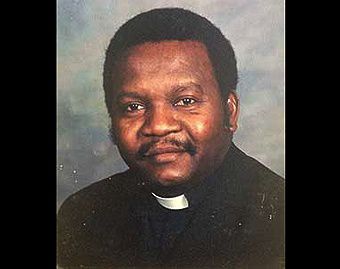Members of the small Christian minority on the Tanzanian islands of Zanzibar are suffering intimidation and now fear that their children will be coerced to convert to Islam, one resident said. “If we go to church on Sunday, we have to go through a crowd of people who often try to intimidate us,” a Catholic man speaking under the pseudonym Matthew Limo told the Catholic pastoral charity Aid to the Church in Need. The houses around Limo’s church belong to Muslims. “They often shout that we are fools to go to church or that our women are naked. In fact, the Muslim women are all covered from head to toe,” he said. Limo said that he personally does not feel intimidated, though he noted that many of the harassers’ comments are “directed towards women and children.” His parish has about 400 members, though only 200 regularly go to Mass. About 98 percent of the Zanzibar archipelago residents are Muslim. Limo voiced concern about his children’s future. “At home we try to encourage and to teach them a love for Christ and the Church. But we are insecure about what others do,” he said. “We often hear stories about Muslims trying to convert children. Sadly enough we need to tell our children to be careful in building friendships with Muslim children.” A trend of violent attacks on churches and individual Christians began on the Zanzibar islands in December 2012. Father Evarist Muchi, a 55-year-old Catholic priest, was shot to death when his car arrived at the entrance of St. Joseph’s Cathedral for Sunday Mass. A Protestant minister has also been killed. Father Ambrose Mkenda suffered serious injuries in another attack, Aid to the Church in Need reports. The perpetrators have not been caught and many local Christians say local police have at times obstructed the investigation and distorted evidence. Limo said the perpetrators are not outsiders but locals who have been “radicalized.” He said they have been trained by the Somalia-based terrorist group Al-Shabab. He said the organization is linked to the religious group Uamsho, which aims to establish an independent Islamic state in Zanzibar. While Limo said he feels generally safe to leave home and to travel, he added that the atmosphere can become “explosive” in election years. “On the street, people try to embarrass you or to make you angry. In periods like that I come home early and do not go out in the evening.” The next election will take place in 2015. Some anti-Christian violence has also taken place on the Tanzanian mainland. In May 2013 an attack on a newly opened Catholic parish killed three and injured 60. Two Tanzanians and four Saudi nationals were arrested for the attack. In February 2014, Bishop Bernardin Mfumbusa of Tanzania’s north-central Diocese of Kondoa blamed the violence on the “infiltration of foreign Jihadis” and the return of native-born Muslims who had been radicalized abroad. The bishop told Aid to the Church in Need that most Tanzanians of different religions live together well. He noted that Christian-Muslim tension in Zanzibar is “not new,” though he said the “vast majority” of people on Zanzibar would prefer to live in peace.

